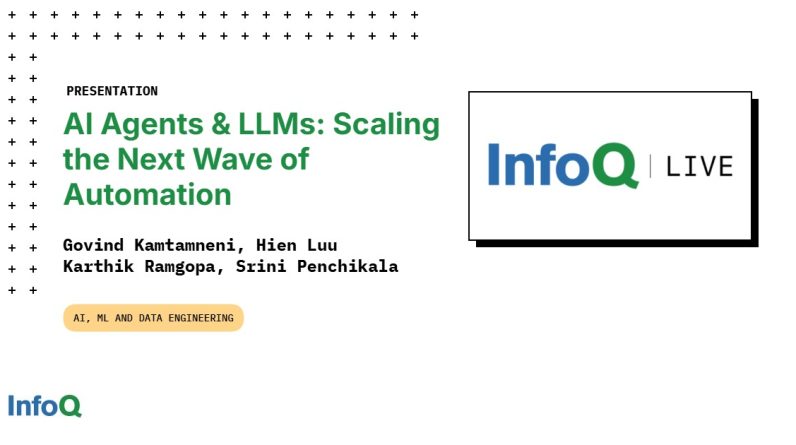As the founder of a successful performance marketing company, I pay attention to how things are advertised, and I’ve noticed something really interesting in the way we as a culture talk about artificial intelligence (AI). There’s been a massive shift in our perception of AI technology in the last year.
“AI” was a cool selling point for a new SaaS or product for decades. It sounded smart and futuristic, implying that you wouldn’t have to think as much on your own.
Suddenly, AI is a subject people are much more hesitant to approach. At the time of this writing, two major guilds in Hollywood are on strike, with concerns around AI as a major point of contention in negotiations. People are scared of what it could mean for their jobs.
From a marketer’s perspective, the only reason marketers should be afraid of AI is if they fail to embrace it and get left behind. The job market will change rapidly in the next few years, but I’m here to tell you why the job of marketing will continue to thrive.
Technology and the Job Market
Technology has always been intertwined with the evolution of the job market. As we’ve seen throughout history, technological innovations have a knack for making skilled labor accessible to unskilled workers, reshaping industries and livelihoods in the process.
In the Industrial Revolution, manual labor was replaced by machinery. This seismic shift not only increased efficiency but also democratized production. Workers no longer needed years of apprenticeship to manufacture goods; they simply needed to operate machines.
Fast forward to the modern age with taxi drivers. Previously, becoming proficient at this job required years of experience — knowledge of the city’s streets, understanding traffic patterns and honing customer service skills. Today, with GPS technology and platforms like Uber or Lyft, anyone with a car can become a taxi driver in moments. Years of experience have been distilled into smartphone applications, once again democratizing a previously skilled profession.
Editor’s picks
And now, we stand on the brink of another transformative wave: artificial intelligence (AI). Just as with those past revolutions, the job market will absolutely evolve, but it does not mean jobs are going away. Instead, jobs should be made more efficient and free the human workers up with more time to do what only they can do.
How Marketers Can (and Should) Use AI
AI is no longer a futuristic concept, but an integral part of our present and a key driver of the future. This is perhaps most true in the worlds of performance marketing and digital advertising.
Programmatic Ads
By leveraging machine learning algorithms, programmatic platforms can analyze vast amounts of data to determine which ads to buy, what price to pay, and who to target. This eliminates guesswork and enhances precision in ad targeting, resulting in more effective campaigns and better use of marketing budgets.
The Rolling Stone Culture Council is an invitation-only community for Influencers, Innovators and Creatives. Do I qualify?
This is an area where AI has a long way to go before it can be trusted without human monitoring and intervention, but it can at least alleviate the need for advertisers to be as in-the-weeds as they were in the not-too-distant past.
Predictive Analytics and Anomaly Alerts
Related
Predictive analytics, powered by AI, is another tool that marketers should have in their arsenal. It allows us to forecast future consumer behavior based on past patterns. With this insight, marketers can create more personalized and timely campaigns, improving engagement and conversion rates.
My staff uses a tool we developed that frees them up from a lot of the time-consuming reporting so they can focus on big-picture, creative campaigns.
AI can also alert you when there’s some sort of anomaly in your performance marketing and advise how to respond. Any specific ways to optimize the ad on short notice? AI can present you with a list of options. Pick one, or use it as inspiration for your own education conclusion. Either way, you’ve got backup.
Large Language Models
AI can also improve content creation and distribution. Tools like natural language generation can help create engaging content, while AI-driven distribution platforms ensure your content reaches the right audience at the right time, maximizing its impact. Resources like ChatGPT and the recent slew of competitors will write content based on your key goals and keywords. A venture fund I helped launch is currently developing a product that will use your brand voice, tone and guidelines to make each AI-authored piece something your brand will be proud to publish.
Social Promotion
AI can enhance social media marketing through sentiment analysis, identifying trends and automating post-scheduling. It can sift through massive amounts of social data to glean valuable insights about your brand perception, helping you shape your messaging accordingly.
Chatbots
AI-powered chatbots are revolutionizing customer service and engagement. These virtual assistants can provide 24/7 support, promptly answering customer queries, guiding product selection and even handling complaints. By automating these interactions, marketers can focus their energies on strategic tasks, while ensuring their customers receive immediate assistance.
You don’t have to work hard to find stories of AI chatbots gone wrong. This technology isn’t replacing your sales teams or client success teams anytime soon, but it can be a useful tool to field requests and expedite support.
Trending
Why It Matters
Sure, I still think “AI” sounds cool, and I’m eager to responsibly embrace the developments that come with it. But none of these things are about AI being “cool.” It’s about enabling performance marketers to get better performance metrics.
AI is not here to replace digital marketers but to empower them. By automating routine tasks, providing insightful data analysis and enhancing precision in targeting, AI allows marketers to focus on crafting creative strategies and delivering compelling narratives — aspects that truly resonate with consumers and set brands apart. Embracing AI is not just an option; it’s a necessity for those looking to stay competitive in the ever-evolving digital landscape.






